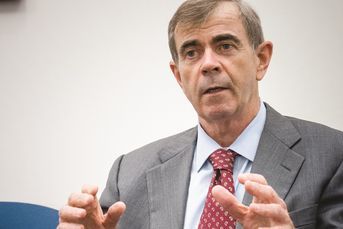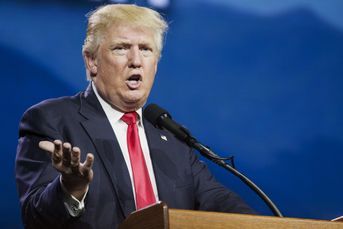Institute for Fiduciary Standard begins program to hold advisers publicly accountable
The best practices program will require advisers to charge reasonable fees and disclose them.
The Institute for the Fiduciary Standard has started a program for financial advisers that’s designed to demonstrate they’re adhering to best practices when engaging with investors.
Advisers who participate will publicly communicate their commitment to putting clients’ interests ahead of their own at all times by agreeing to post a statement of the Institute’s best practices on their websites, and making a disclosure in the legal form they file when registering with the Securities and Exchange Commission, according to a statement Monday.
The program is being started after the Labor Department issued in April a fiduciary rule that requires advisers to act in the best of interests of their clients solely when assisting them with their retirement accounts. The Institute for the Fiduciary Standard’s program covers all areas of financial advice and is making fee transparency an element of its focus in protecting consumers.
“Best practices are defined by deeds,” Knut Rostad, president and founder of the Institute for the Fiduciary Standard, said during a media briefing Monday in New York.
Advisers will be required to disclose any potential conflicts of interest and make a “good faith” estimate of the fees they charge investors, he said. While the Institute for the Fiduciary Standard isn’t policing advisers, or creating an enforcement arm to ensure they’re adhering to its best practices, the program would give regulators and investors an opportunity to scrutinize whether they’re upholding the professional standards they’ve marketed.
(More: The most up-to-date information on the DOL fiduciary rule)
The Fiduciary Advisor Affirmation Program has won the backing of executives at Pershing and TD Ameritrade Holding Corp., which act as custodians for the RIA industry and have been helping advisers with compliance-related matters, including understanding how to meet the demands of the Labor Department’s new fiduciary rule.
Mark Tibergien, chief executive officer of Pershing Advisor Solutions, said the Institute for the Fiduciary Standard’s new program “provides a helpful framework for accountability,” according to a statement posted on the non-profit organization’s website. Skip Schweiss, managing director of advocacy for TD Ameritrade Institutional, said in his statement of support that an advisory firm affirming its adherence to the Institute’s best practices “can really differentiate its standard of care with investors.”
Registered investment advisers, as well as brokers with “hybrid” practices who do some business as an RIA, are permitted to participate in the program, according to Mr. Rostad. He said firms that employ them must back up their “good faith” estimates of fees being charged.
While the Institute for the Fiduciary Standard is trying to help investors vet and compare advisers, a simple disclosure of fees may not go far enough in helping them determine whether they’re reasonable.
Jim Lumberg, co-founder and executive vice president of Envestnet, said during the media briefing that the provider of wealth-management technology and services has access to broad data that it’s reviewing to help establish a benchmark for advisers and investors to assess the fairness of fees.
Chicago-based Envestnet works with about 50,000 financial advisers servicing about four million accounts, he said.
While the Labor Department’s fiduciary rule lifts advice standards for retirement accounts, many in the wealth management industry are looking to the SEC to issue a uniform fiduciary standard that would apply to brokers as well as RIAs for any kind of investment advice.
There’s often confusion and a general lack of knowledge among consumers about what they may expect from the financial advisers they select. While those registered with SEC are legally bound to act in investors’ best interests, brokers have been held to a less stringent suitability standard. The Labor Department fiduciary rule applies to brokers and RIAs alike, but only applies to situations where consumers are seeking help with their 401(k) plans and individual retirement accounts.
Luis Aguilar, who served as SEC commissioner from 2008 to 2015, is supporting the Institute for the Fiduciary Standard’s efforts ahead of any uniform rule that the regulator may propose.
“Regrettably, when it comes to the advisory industry, many investors view finance and financial advisers in a dim light,” Mr. Aguilar said in Monday’s statement. “It’s important for the industry to take steps to improve this situation.”
Learn more about reprints and licensing for this article.






